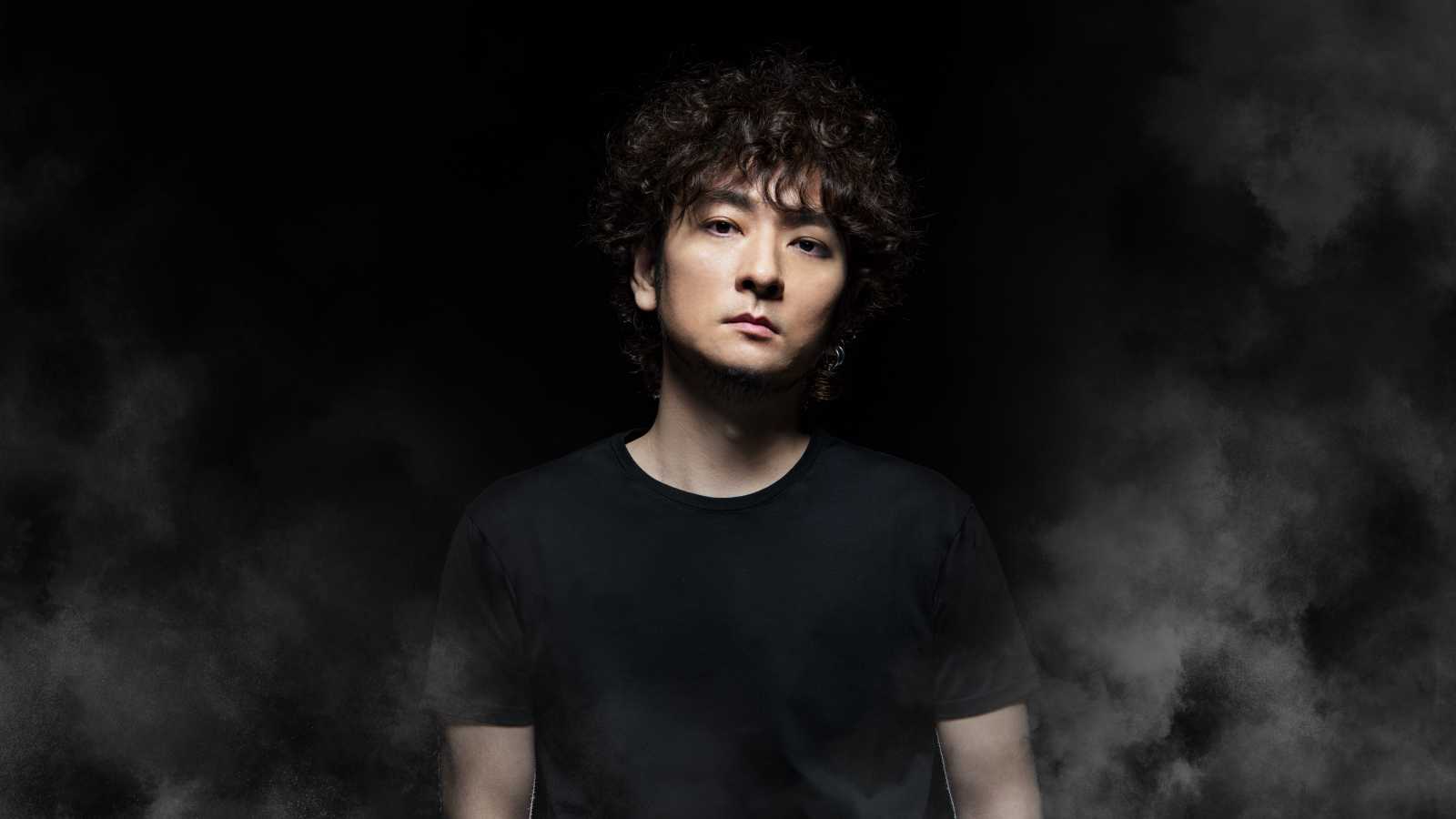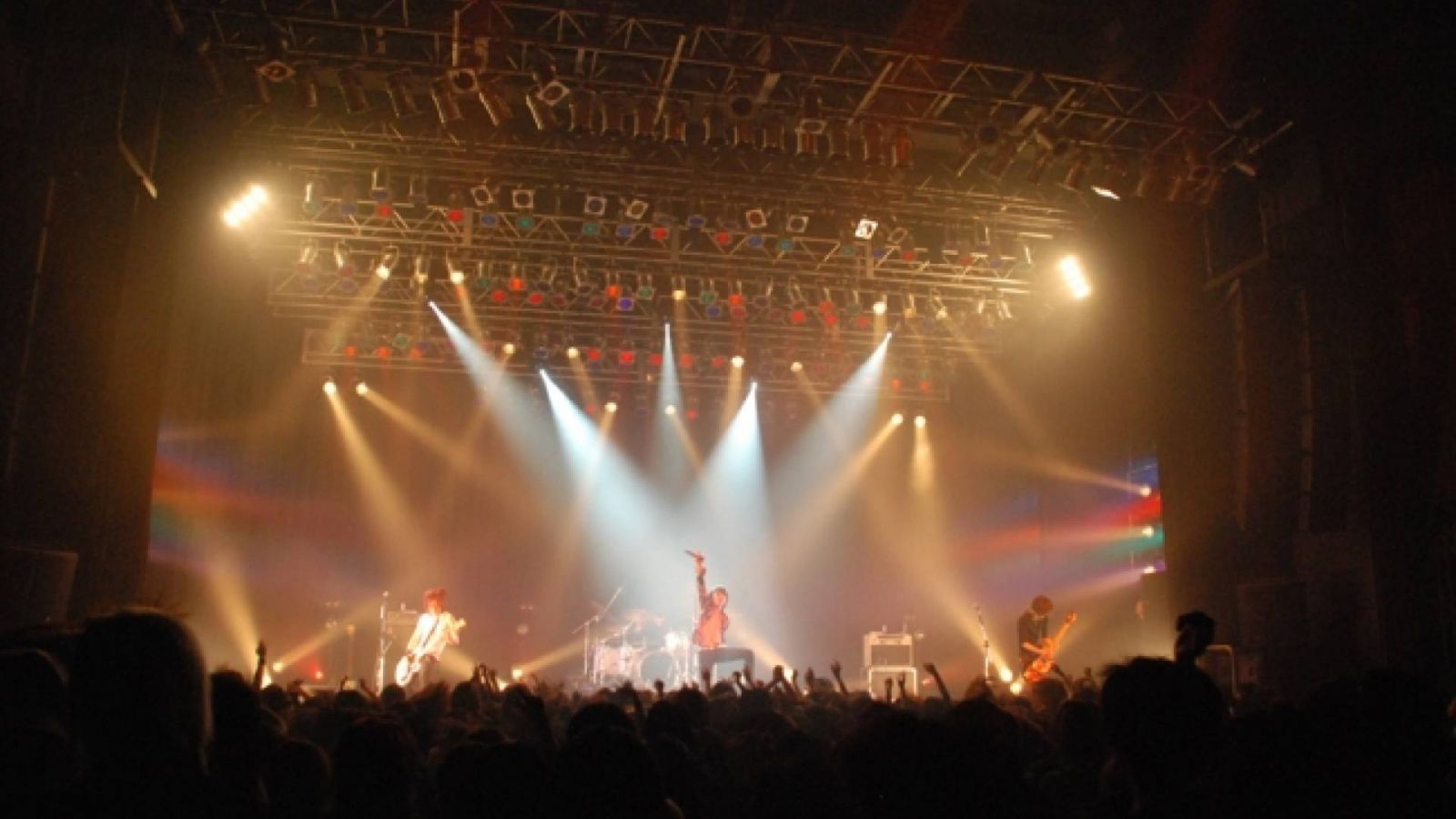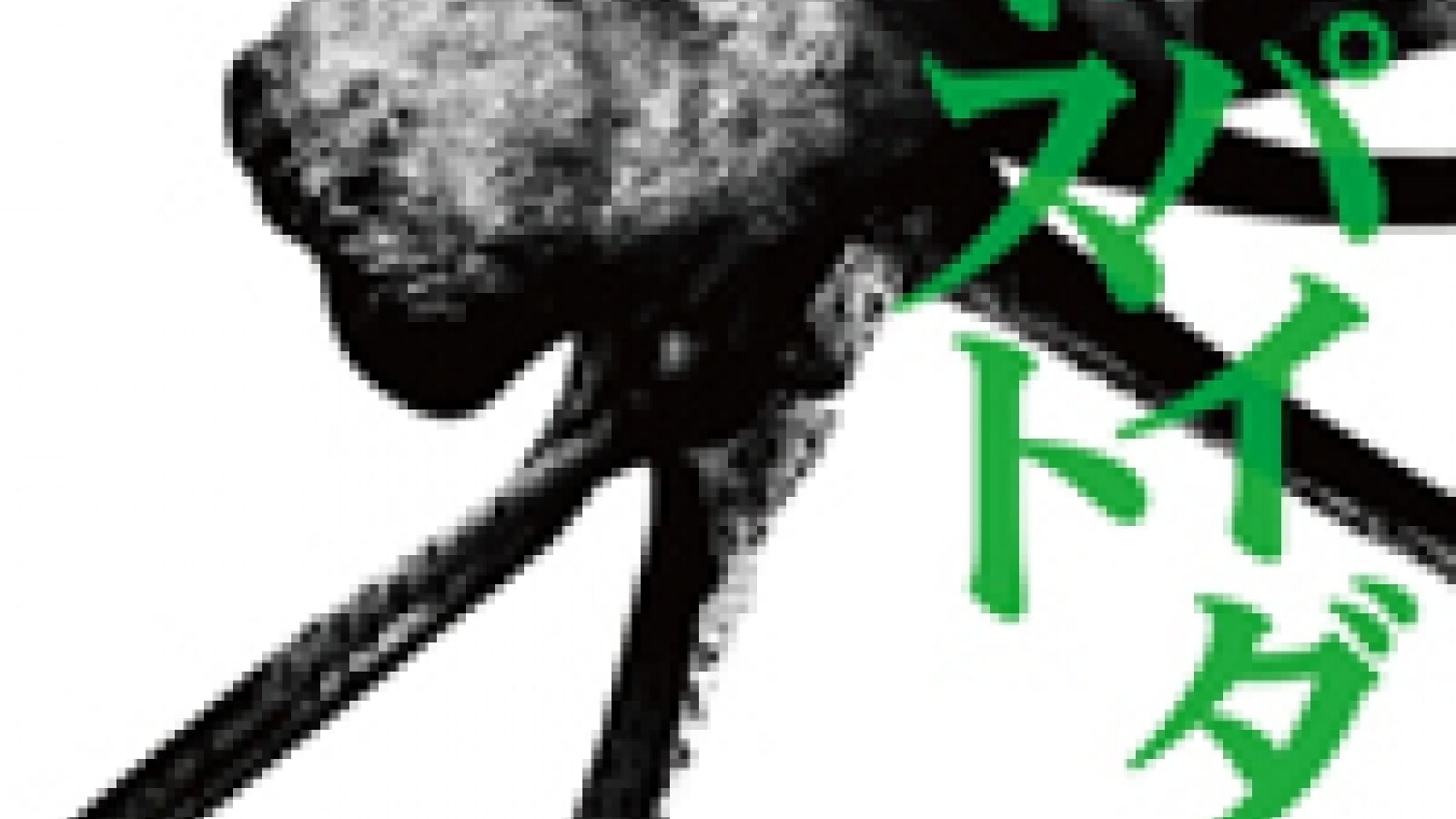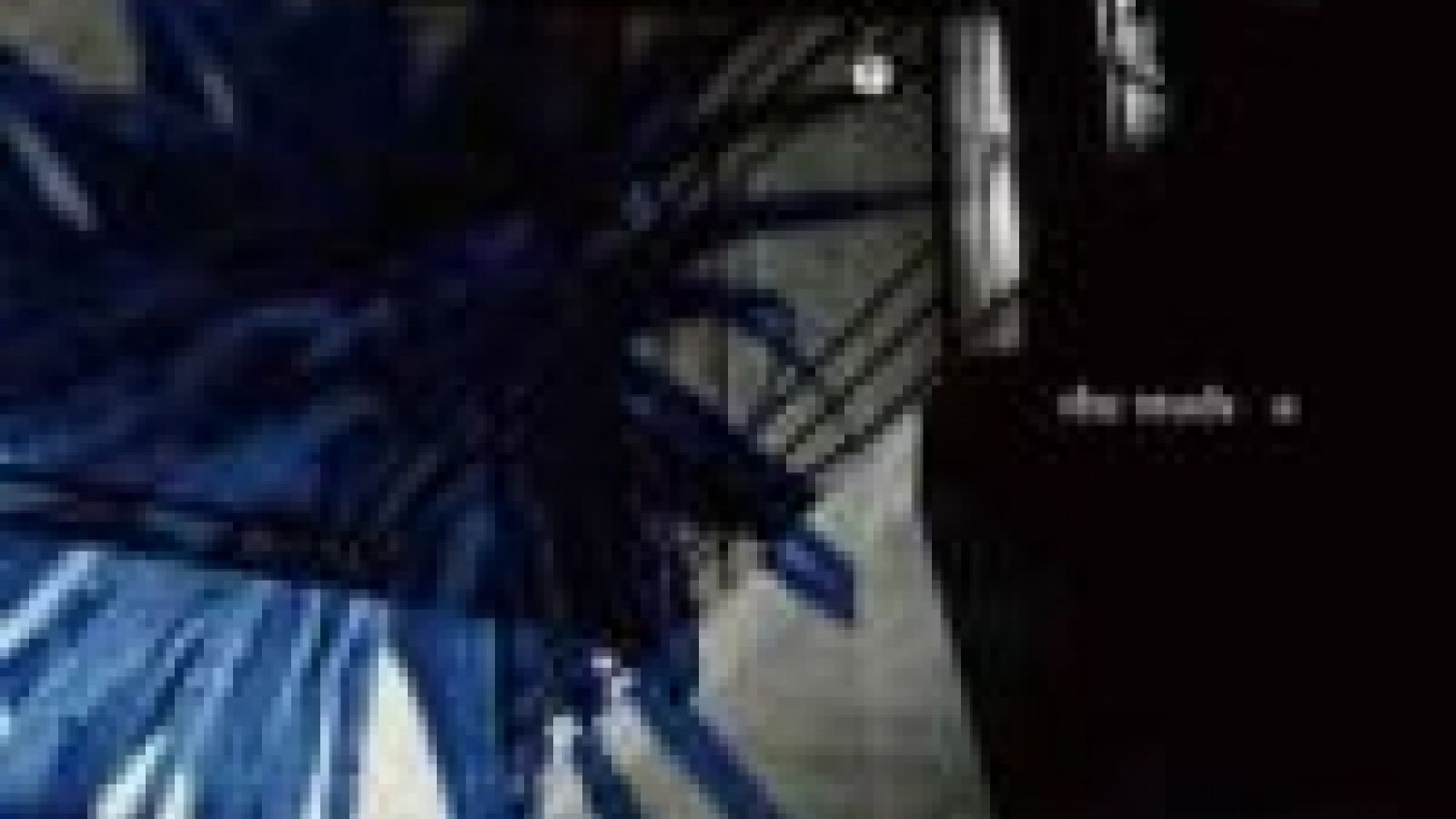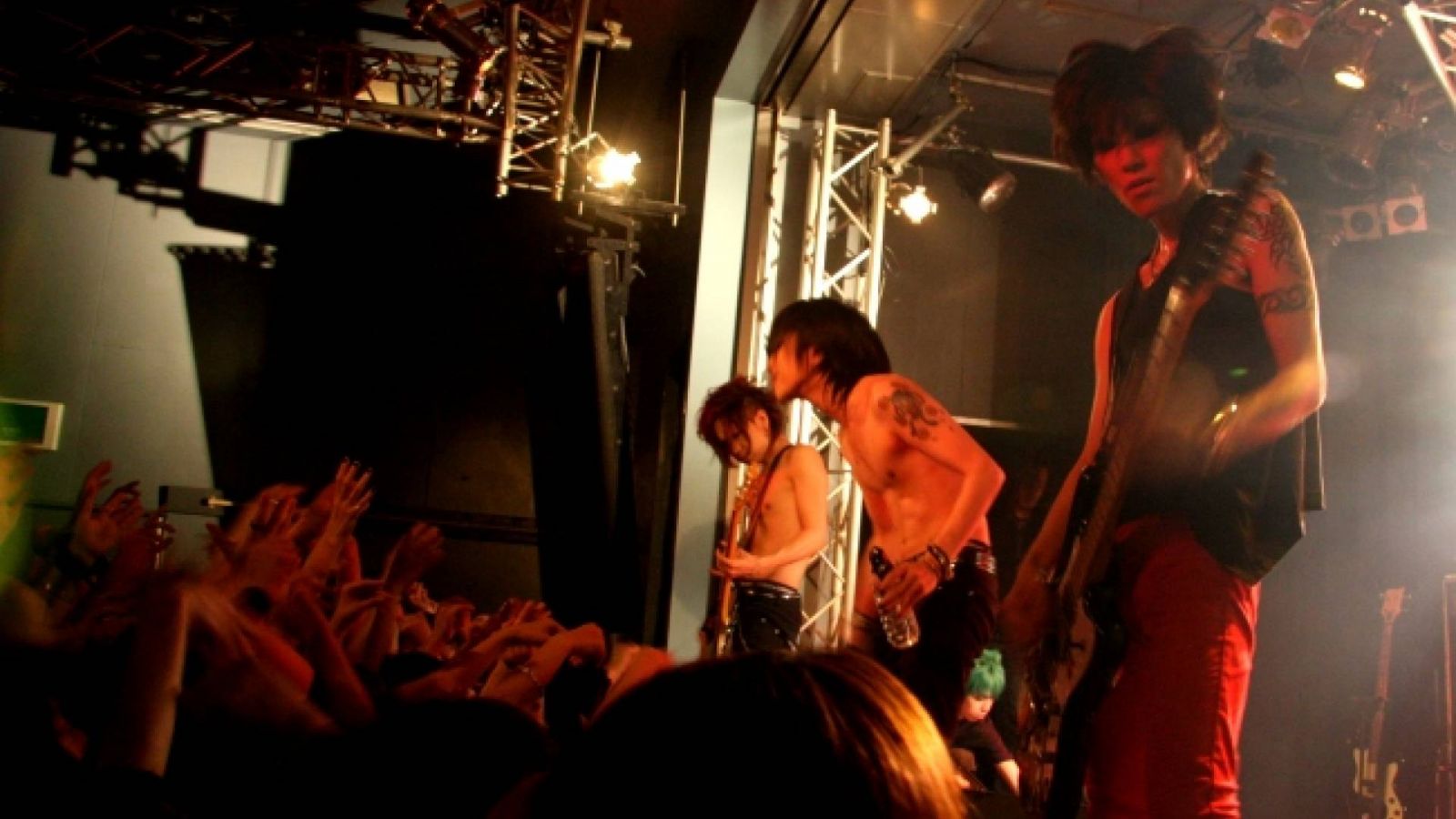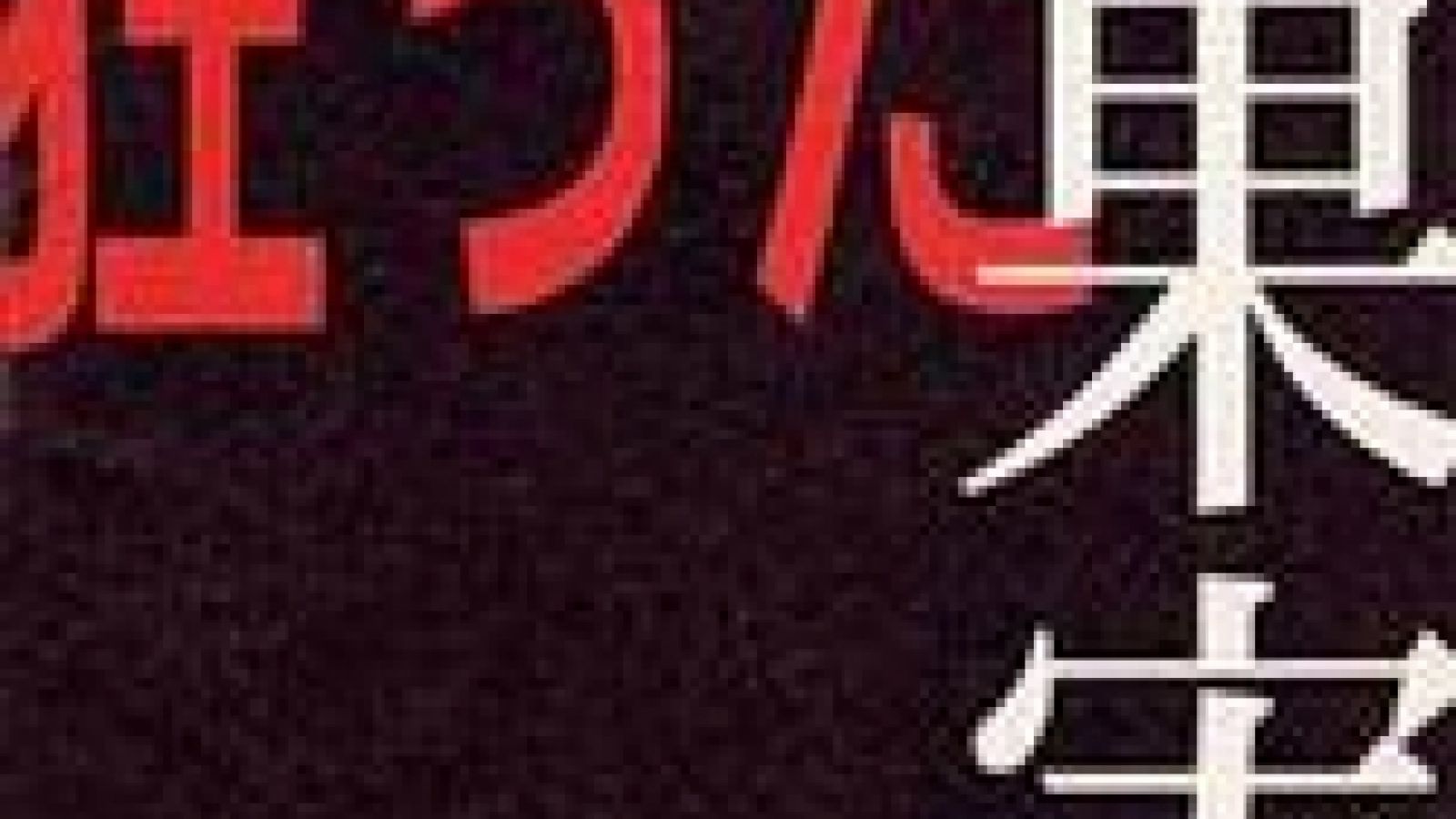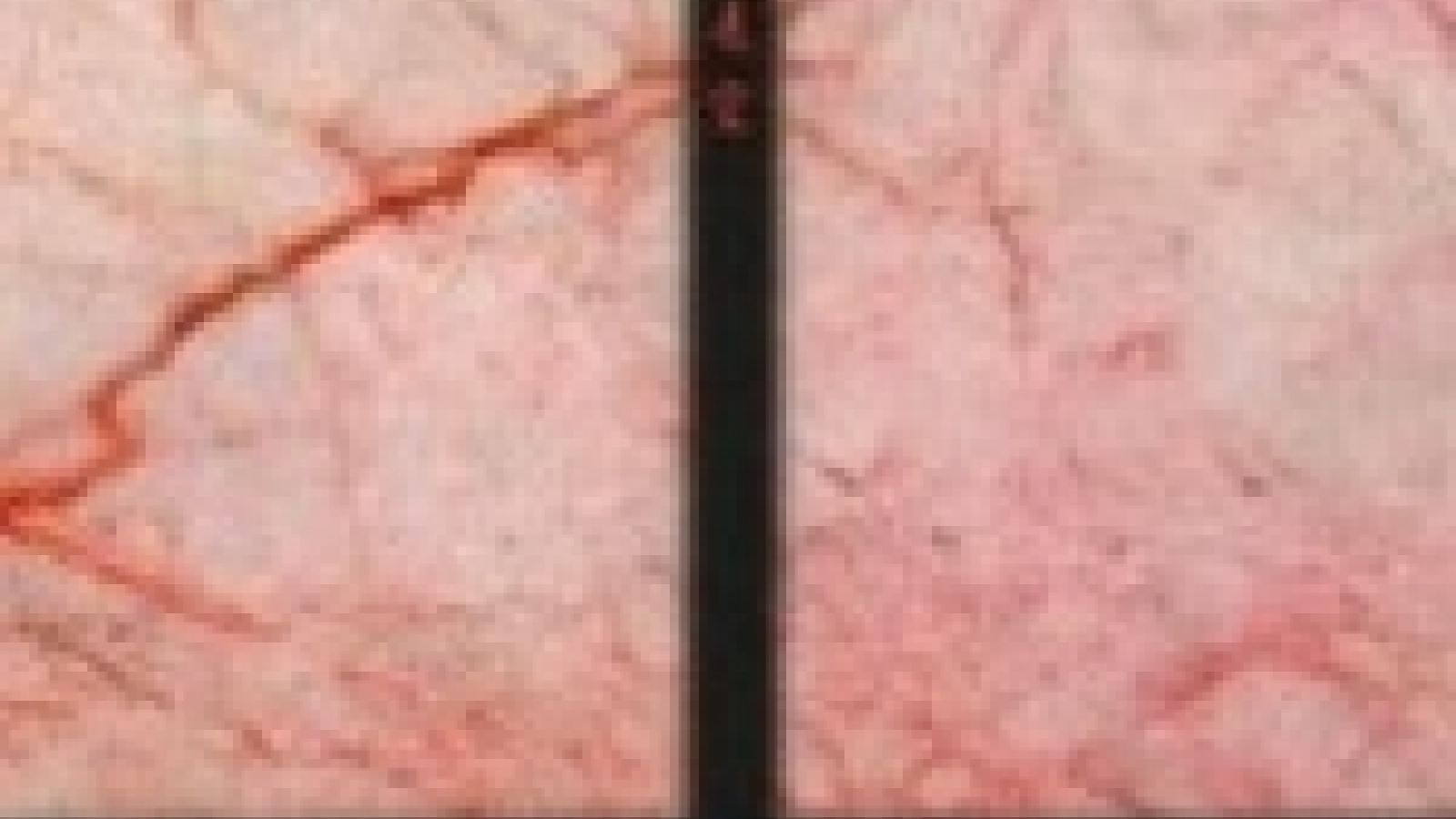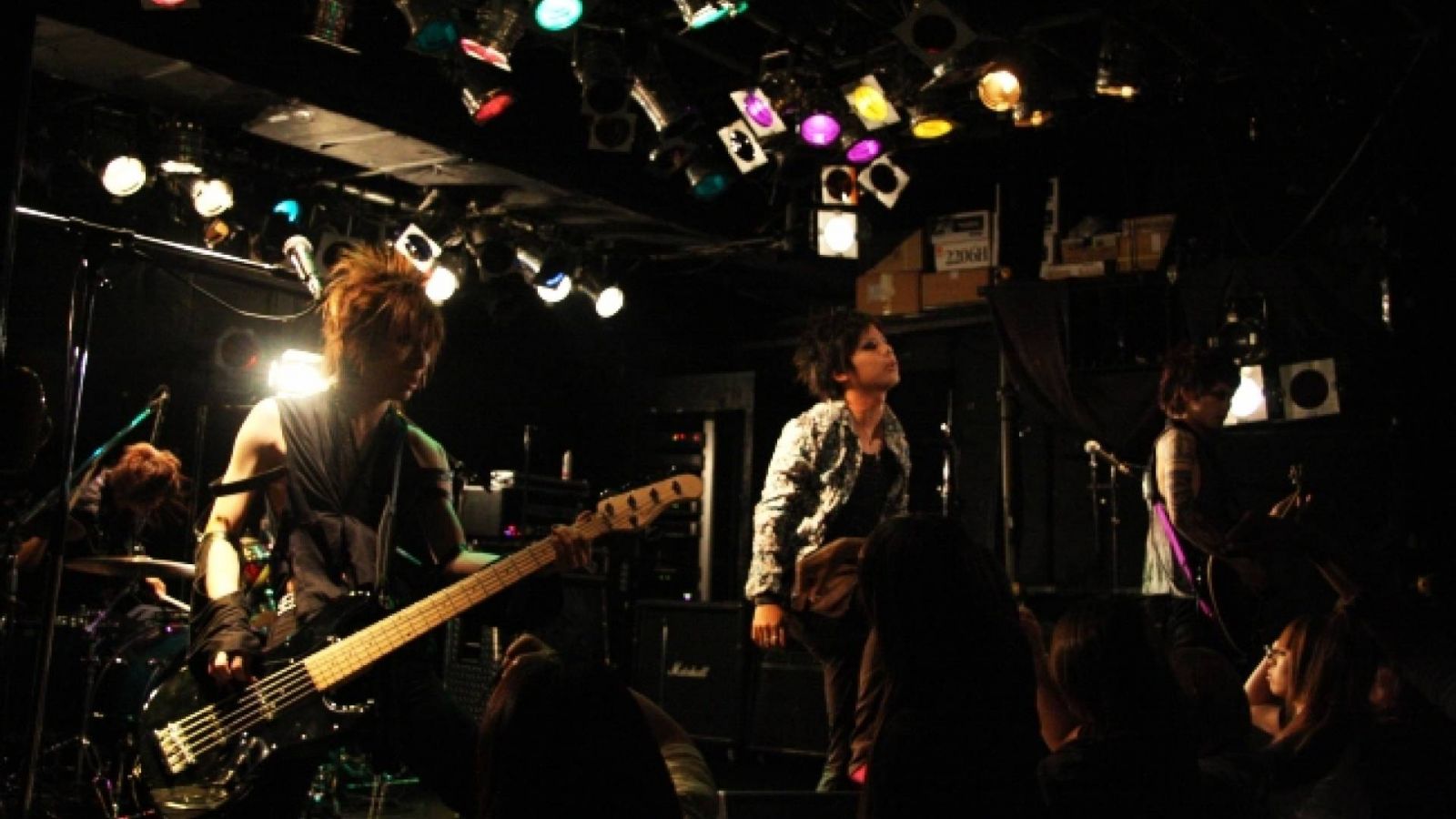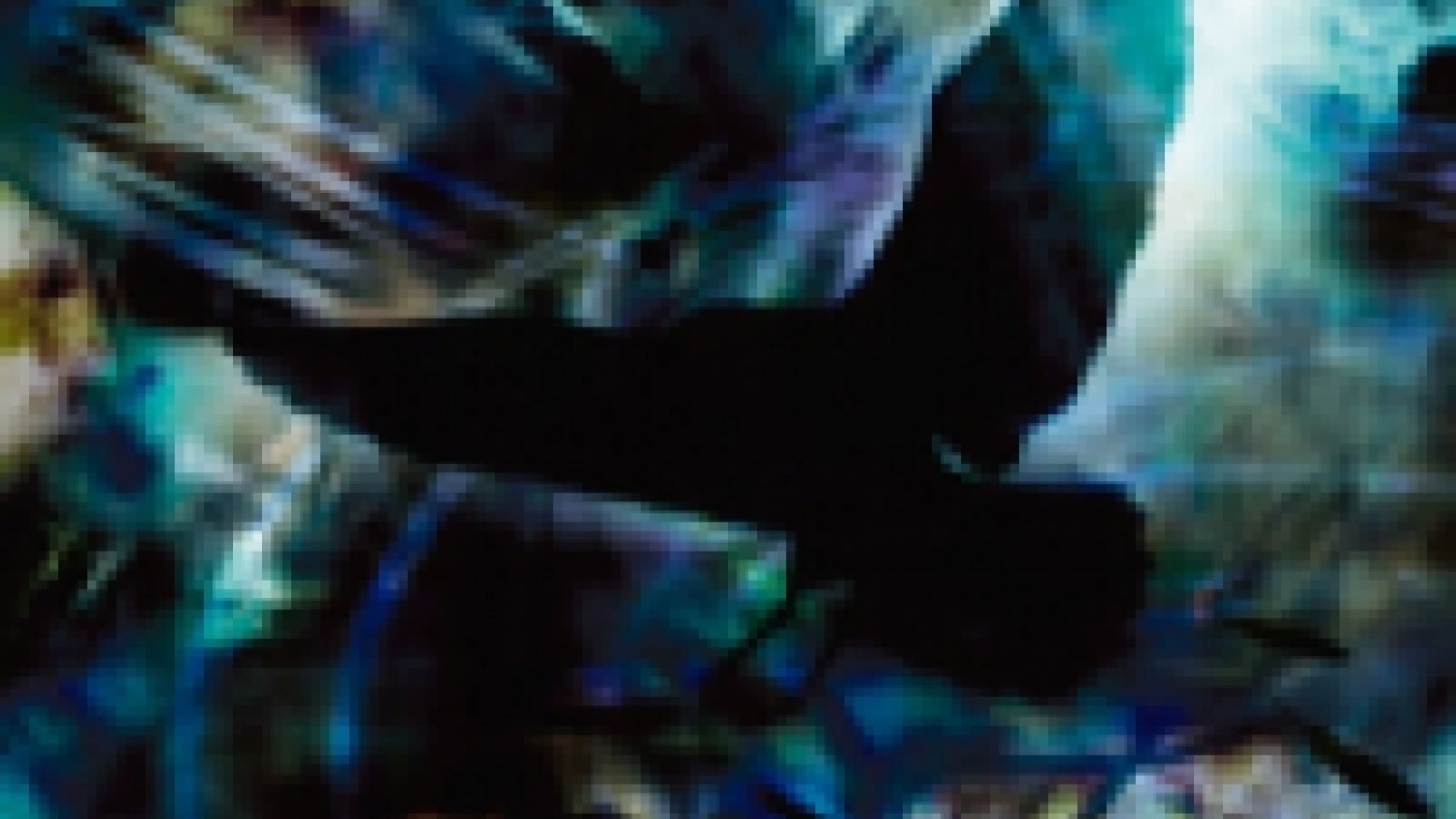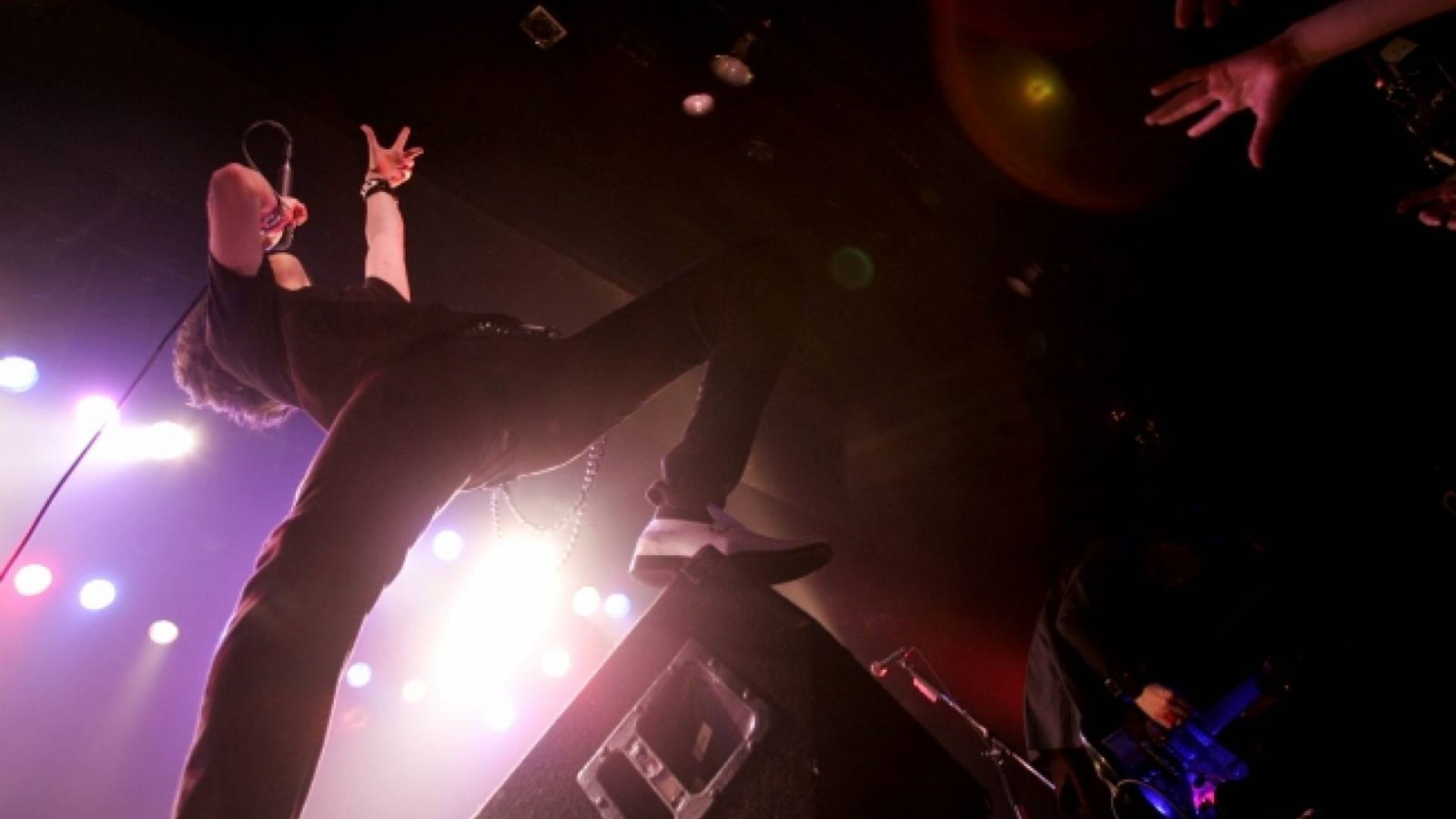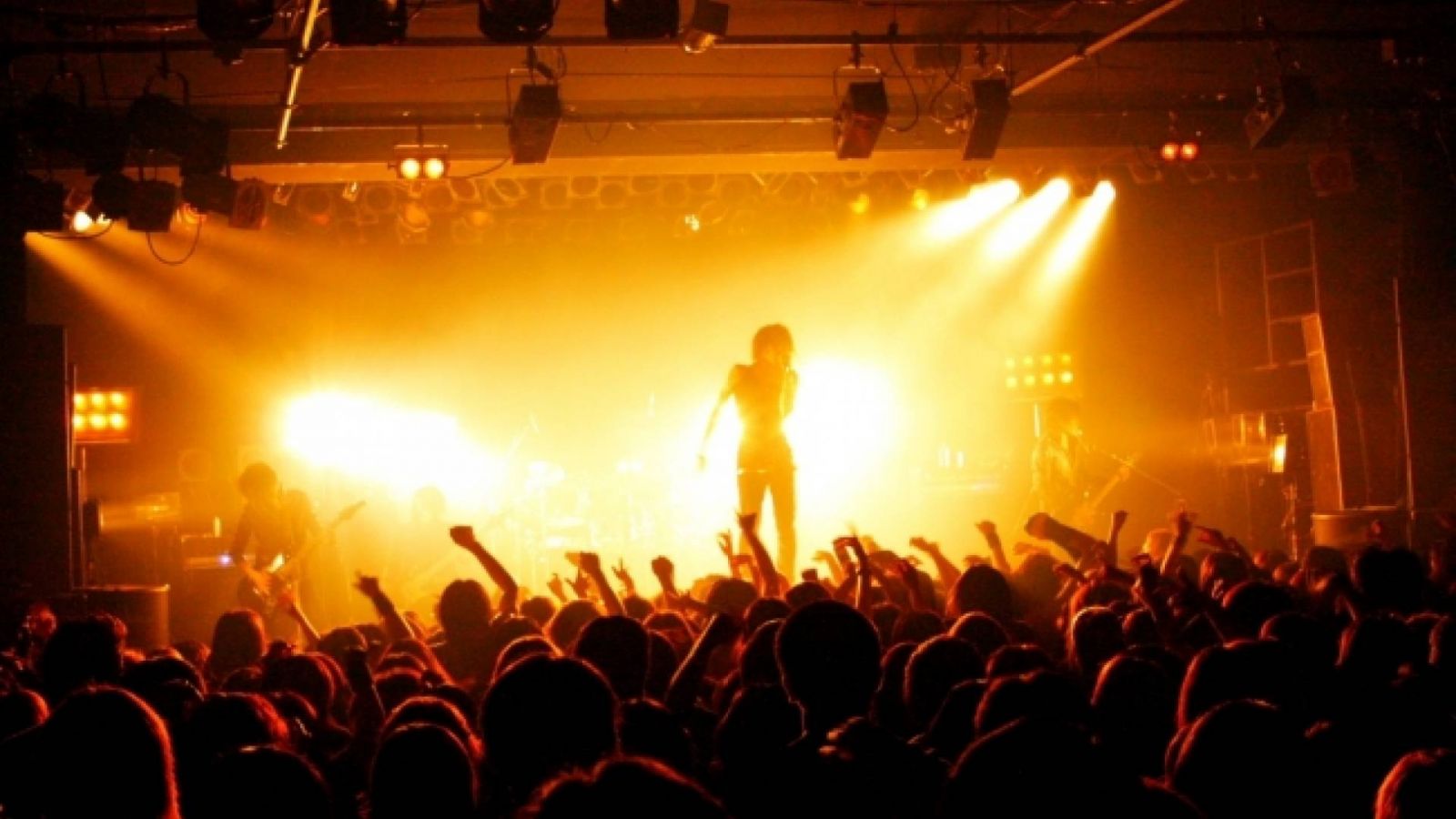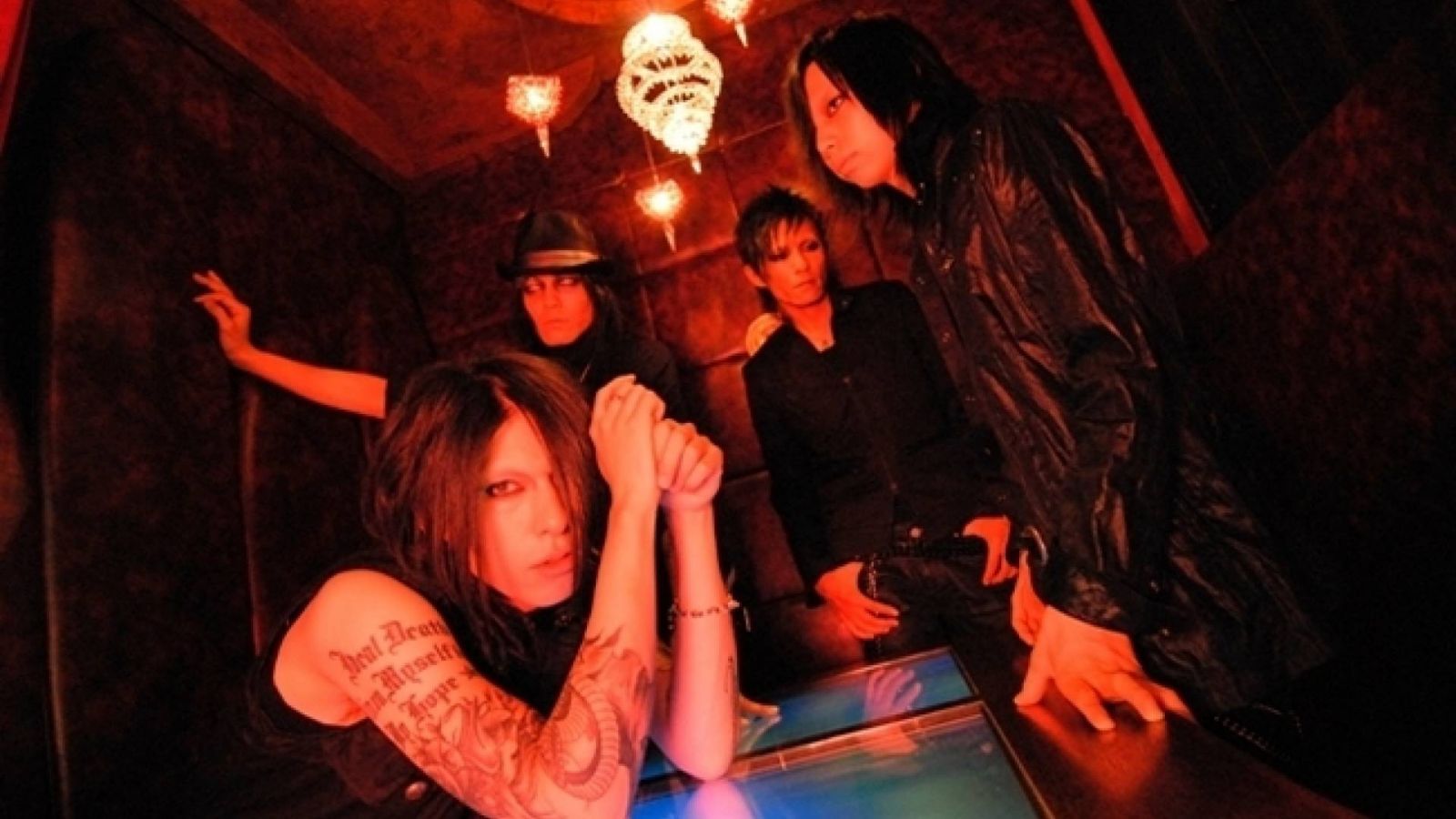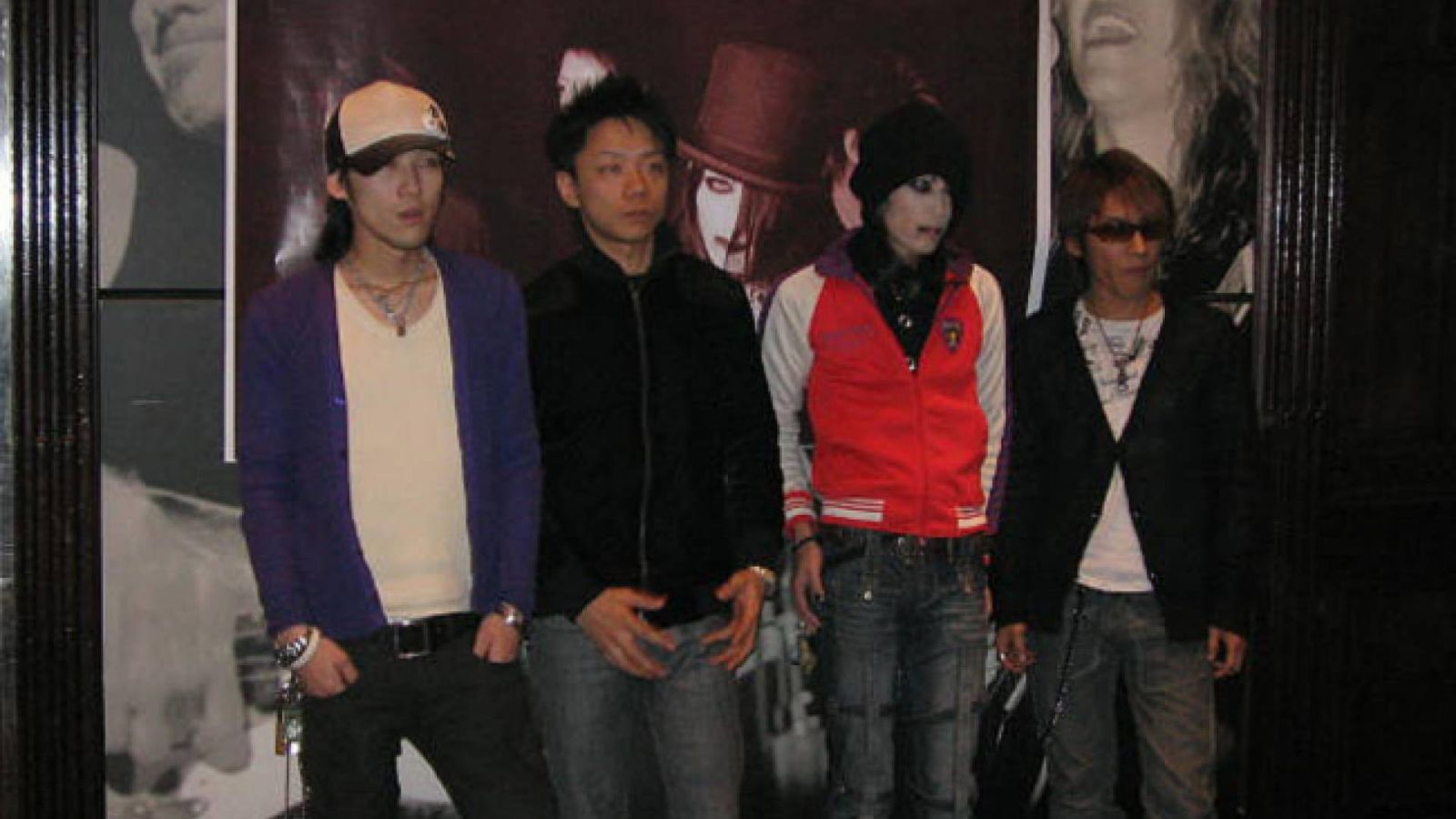lynch. is a driven, heavily live-focused visual kei band based out of Nagoya. Lately, the band's popularity has been picking up quickly and they're getting a lot of attention in Japan, but it seems that overseas
lynch. is one of the hottest bands of the moment.
In order to get to know this popular band a little bit better, JaME talked with vocalist
Hazuki and guitarist
Reo. Both guitarist
Yusuke and drummer
Asanao weren't present at the interview, so they answered a few questions in our weblog.
Asanao's answers can be found
here and
Yusuke's
here.
Could you introduce yourselves please?
Reo: I’m the guitarist,
Reo. It’s nice to meet you.
Hazuki: I’m the vocalist,
Hazuki. Nice to see you.
Why did you choose the name lynch.? Does it come from the verb "to lynch"?
Reo: Yes, I took the band name from the verb with its violent meaning. The word sounds antisocial in Japan, so when people hear the term '
lynch.', they connect it to the violent meaning first of all, I think. However, rather than re-creating the violent meaning as a band, I want people to remember our sounds and live images when they hear our name. I wanted the band to give off a lot of intensity so people remember us first instead when they hear the word '
lynch.'.
Did the founding members name the band?
Reo: I suggested the word because I liked the letters and the sound, and I asked the other members what they thought of it.
Is there any specific reason for the period (.) at the end of your name?
Hazuki: It doesn’t have a special meaning, but I thought with the period the name seemed tighter and simply cool.
Why did you decide to re-release your previous works on THE BURIED?
Reo: Our previous works are quite hard to get now and there are many fans who can’t buy them simply because they aren’t produced anymore. The songs in
THE BURIED are important songs to us, we really felt we had to include them. Recently we have been requested to produce them again because we play the songs in our lives, but they aren’t sold in shops anymore. We could have just released the original albums again, but our situation is different now as we have a new guitarist,
Yusuke. He joined and we gained experience through our lives; our understanding for songs and performing got better, and I think that we have much more power now, so we recorded again.
The band has changed to include two guitarists, hasn’t it?
Reo: Yes. Before, I recorded dubbing 2 or 3 guitars, but as
Yusuke joined, he brought something different with him that still holds the image of our songs, but also lends a different taste.
Hazuki, have you changed the way you sing?
HAZUKI: Yes. I hated my voice in the original album at that time, but I worked hard on myself, focusing on the points that I hated. In this recording I was really able to get over those things so I feel like I have made my revenge, so to speak, singing songs more comfortably. If you compare them, you’ll see they are quite different.
When you selected the songs, did you choose the songs which you play in your lives?
Reo: All of the band members did a questionnaire concerning which songs we would put on the album, and we discussed it. Our opinions were almost all the same: the songs we have our usual live set list were the ones we wanted to put in the most. So, the result was that we chose songs based on our lives.
Was the schedule of the recording difficult?
Reo: When we recorded, our tour dates were already determined so we checked our schedule and recorded when we had some spare time. Usually we concentrate on recording all the time without doing any lives, but this time we had already confirmed the tour so we put the recording into our schedule like "we can record one day here" or "we can do two days here."
So, you could put the energy of your lives into the album more than usual?
Reo: Well, it depends on the person I think, but generally our feelings toward our lives and recordings are a little bit different. It was hard to change modes when going into recording, especially since we chose songs that we play in our lives.
On your album THE AVOIDED SUN
, there is a song titled I’m sick, b’coz luv u
. It sounds like it’s going to be an intense ballad, but musically, it’s the complete opposite. Why is that?
Hazuki: When we made the album
THE AVOIDED SUN, we really pursued something original. Rather than doing just what we wanted to do, we put more and more new things in and we dared to try totally new combinations. We also tried to think of interesting song titles, making songs seem like ballads but they are actually really hard songs. I thought if I made hard songs with a hard image they would lose their power. I like the contrast between the title and the song itself.
So you made combinations that we, the listeners, couldn't really imagine, didn’t you?
Hazuki: Yes. I thought it would bring something new. And actually I’m satisfied with it.
During the summer of 2006, you released a single called a grateful shit. What was behind this name? What did you want to express with it?
Hazuki: (laughs) "A grateful shit" is an expression in the music business about the people who use and dump young musicians like toys, and the young musicians who are sick in their heads and easily follow such people (laughs). In that song I warn them, "are you all right like that?" We won't be like that, it would be better to be 'shit'. I put in some sarcasm and expressed us as 'a grateful shit' in this way (laughs).
Have you ever talked about this?
Hazuki: Maybe not (laughs).
Reo: Well, we haven’t been asked about it until now (laughs).
How do you write songs and lyrics? Do you arrange your songs with everyone together?
Hazuki: I’m in charge of making songs and I start to form the songs until we can see some kind of shape and then bring them in. Generally I compose songs from the beginning, but I don’t make detailed parts of each instrumental bit so that the other members can do what they want. After members listen to the songs and memorize them roughly, then we play together in a studio. There each member puts their own world into the songs, and really enhance the songs’ presence.
Do you make songs by playing the guitar?
Hazuki: I do. I also use a rhythm machine and input the drums and make rhythm phases. And I put bass and sometimes my voice in.
Do you put your lyrics in later?
Hazuki: Yes. The last thing I put in is lyrics. As other members arrange songs, melodies are made because we make melodies as we arrange the songs, and then I put lyrics on in the final stages.
When do the inspirations of songs come into your mind? When you make songs, do you imagine whole pictures or stories?
Hazuki: I don’t have a certain time when they come and I don’t know when they will come. Whenever something comes into my mind, even when I’m with my friends, I want to go home and make songs quickly (laugh). Of course, when I make songs at home, it comes clearly. About the pictures and images, they depend on songs. For example, in fast, hard songs, I imagine live images generally, and create it thinking "if I arrange like this the audience would react like that." As for ballads, I have more abstract images, but anyway I don’t have concrete images so much.
What are your artistic influences?
Reo: I’m Japanese, so I entered from popular songs or Japanese rock, but I was absorbed in 4AD once in a while, which is a British indies label with the Gothic taste; artists such as
Bauhaus, Cocteau Twins, and
Dead Can Dance. They are different from our sounds in
Lynch. now, but I think the present
Lynch. still has the gloomy mood that such gothic artists have.
Hazuki: Mine is quite broad
well
I’m not sure whether it's broad or narrow (laugh). I started to listen to rock when I listened to
LUNA SEA at first, then I was absorbed in heavy, loud rock when I was teenager
now I'm really fickle. I just listen to what I think is good at that time. I dare to say it's in the genre of New School Hardcore, which used to be called screamo a while ago, I think, which is music that has beautiful melodies and very chaotic parts too.
Do you take inspiration from a particular artist for your album designs?
Reo: Our drummer
Asanao is in charge of that.
Does he draw by himself?
Reo: I heard that he does collages, but he won’t show them to us in the creation process, so it’s unknown (laugh).
What did you think when you saw the album jackets he made?
Reo: In comparison to when we ask non-band members to design covers, he has a better understanding of our work, so it is often better. We have never had the need to criticize his work.
Did he bring a few pieces in and you chose from them?
Reo: He asked us, "I’m thinking to create something like this, what do you think about the direction?" But basically we leave it to him.
So your music and art are progressing at the same time, aren’t they?
Reo: Yes.
Why have you used English song titles only since your debut album was released?
Hazuki: That’s simply because I think for the image of the band
Lynch., English letters really match the band's image. This is just my personal opinion, but I think English letters look like codes and fit to us more than Japanese letters.
So it’s not because you want to release your message to foreigners especially.
Hazuki: No, I’m not really thinking about that so much (laugh).
What are your own favorite songs from lynch.? And why are these your favorites?
Reo: My favorite song is
pulse from
THE BURIED. We play this song first or last, and I feel a sense of identification with the audience. I enjoy playing this song very much, so I choose
pulse.
Hazuki: Ah....It changes so often (laugh), but
liberation chord, which is the first song off our second album,
THE AVOIDED SUN, is what I like now. As I said before,
THE AVOIDED SUN was the album we really put in our originality, so we couldn’t have the first song without it having an enormous impact and we really raised the stakes there (laugh). When making this song there were parts that surprised even me, but in the end I thought that the completed work was quite good.
In the credits in the CD of THE AVOIDED SUN
, it’s written that you chose 11 songs among 205 songs, which is just awesome!
Hazuki: Ah, yes (laughs). But actually I didn’t bring that many songs to the members. I had made about 205 songs, but I killed most of the songs by my own judging, so I ended up bringing about 20-30 songs to members.
And you keep creating songs now, don’t you?
Hazuki: Yes. I’m creating new songs all the time.
You've released several singles and two albums, but never a PV. Are you interested in shooting PVs?
Reo: We are actually interested in that (laugh). This time we put our live DVD in the first edition version of
THE BURIED. We are proud of ourselves as a live band and if we released our images it would be our live images, not PVs. So we think live images should be first. However we’ll have a chance to shoot PVs from now on.
Your lives are really powerful and I really recommend people to see you live.
Reo: Sure!
You’re one of the top acts, often referred to as the "third generation" (2003 - now) of Nagoya kei. But almost all of you have made experience in what fans would call the "second generation" Nagoya kei (1997 - 2002). Were you inspired by the "first generation" bands like early Rouage or Kuroyume?
Reo: I have played since the end of the first generation, so I was influenced, of course. I saw the performances of artists such as
Rouage and
Kuroyume who went major, since they were indies, when they had only a small audience, and I was one of the audience. I don’t think that I was aware of it but I think that I was influenced a lot as my musical personality was formed.
Hazuki: My desire to start a band was prompted by
Kiyoharu of
Kuroyume when I saw his images. When I saw
Kuroyume for the first time, they weren’t a band in Nagoya anymore, they were quite popular and had made a major debut already. Several years later I found out they were from Nagoya (laugh). Did I get influence from Nagoya kei
I might not have (laughs). As for the second generation, there was a band that
Reo belonged to and played in actively, and I liked the band and went to see the band often. So I may have been influenced by the second generation rather than the first generation (laugh).
Can you imagine, why Nagoya is the birthplace for its own "-kei" style? Most of the other styles are named after the way of dressing or such, but your hometown has its own. What is the difference?
Reo: I have been active in Nagoya for a long time, so I think that the connection between seniors, juniors and colleagues are stronger than in other regions. We often go to see lives of our colleagues, seniors and juniors, so we are influenced by them, naturally. From people around us, we have a peculiar air, I think. Even we think we do totally different things, but we are influenced by one another quite unconsciously. We are influenced in the way of thinking or many other aspects besides music, so we seem similar to that of bands from other regions, I think. Nagoya has a smaller population than Tokyo or Osaka, so the music scene is really condensed. As we are active in Nagoya, we know almost all the bands and the range of our activities are small, so we have stronger relations with seniors, juniors, and collages than others.
At first sight, there are many cool adult bands.
Reo: I think the influence of the first generation of cool dark bands such as
Kuroyume and
Rouage is still around now. Actually, I went to see their lives and talked with them, so the sense of value for that style or coolness is taken over from generation to generation, I think.
What is your opinion concerning the visual kei scene in Japan? And what do you think about visual kei being so popular in Europe?
Reo: I’m glad that the music culture of visual kei has been recognized, however, I think its stimulation has decreased. The bands that I actually go and see as audience and buy their CDs as a listener are still minor. To go to the live houses isn’t easy, but there is always a lot of stimulation. But on the other hand I feel that the personalities and powers of each band are decreasing.
Hazuki: To be honest, I’m not so interested in the situation around me (laugh). Well, there are many bands that have their basic policies, and they are respected bands too, but sometimes I see some people who seem to just want to be entertainers or idols. Whether they want to be rockers, or something else seems to be ambiguous and unclear, I think.
You both are not really aspiring to look or fit into the visual kei scene, are you? My impression when I saw your live was that you didn’t seem very conscious of visual kei, but had moved beyond the scene, so to speak.
Reo: I don’t feel resistance if people see us as visual kei. It’s just how people see and judge us. We just do music, wear costumes, and put on make-up, which we think is cool, so if we are taken as visual kei, it doesn’t matter for us, and it’s no problem if it’s not taken as visual kei either.
You said that the visual kei scene’s stimulation has decreased. As many people begin to recognize it and it generally becomes main stream, the scarcity value decreases and stimulation might also decrease.
Reo: Well I think so, because it becomes standard.
About the TOWARD THE AVOIDED SUNRISE
encore tour involve the universe
, could you tell us your impressions of your lives that have already passed?
Reo: We did our last tour just after one year since we released the album
THE AVOIDED SUN and this is the encore tour. This time, I think, so many people listen to our CDs and come to see our lives; they also came to our encore tour. I felt the audience coming to see our lives really understood us and our music, which I could see from the stage very much. So I really feel it’s very good for us to do this encore tour.
Hazuki: This time is the encore tour and the second tour of
THE AVOIDED SUN, so the audience ran high and heated up much more than last time.
What do you want to make in the next three lives?
Reo: The next three lives are one-man lives, so basically they won’t have time limits, so I want to exert all my strength, which the present
Lynch. has. As for music, we can show everything from hard songs to ballads which we can do in one-man lives. I want to show everything about us.
On New Year's Eve, you'll appear in a concert together with about 25 other bands, the 'stylish wave COUNTDOWN '07-'08'. How do you like playing concerts with other bands?
Hazuki: I’m simply burning in events with various bands. The title of this encore tour,
involve the universe, was named assuming the national tour in tai-ban style lives, and means "let’s carry off all of the audience of other bands!" I think we have awareness more than other bands, so I’m burning more as more bands play with us in live events.
As we watch you from the audience, you seem confident to perform as your own band, which is cool.
Hazuki&
Reo: Thank you so much!
You recently signed onto the German label, CLJ records. What do you wish to accomplish by being on a European label?
Reo: We don’t mean especially that we care about Europe specifically, but we want to go to lives wherever people want to see us. When the German label releases our CDs, people will listen to it, and they will want to see our lives, so I really want to go lives as much as possible.
How do you see yourself in ten years, both individually and as Lynch.?
Hazuki: I wonder if I am alive? (laugh)
Reo: This is my very personal talking, but I’m living in Nagoya, and have been watching various bands there, so I myself care about Nagoya very much. In this way, I want to cooperate to release something from Nagoya to all over the world. Of course, it’s including the band
Lynch..
Hazuki: Well, that might be the hardest thing to do, but I simply want to stay cool, regardless of whether we are popular or not. I would be an old man who is not unworthy (laugh), do what I like, and keep creating what I’m satisfied with, which is my happiness.
I’m happy to hear that. No matter how big you get, I am still looking forward to your live concerts. We don’t want you to change when you get big, and want you to keep the hungry spirit that you have now.
Reo: Yes. We want to do our best with 100% force all the time, every time.
You've become rather popular in a short period of time. What advice would you give to young musicians trying to break through?
Reo: I give you just one proverb, which is "don’t hurry, and you should take the longer way" (laugh). It is all there. The long way is the nearest way, and no other way exists, I think. All of the former big artists were like that. We should take time to create, and if we try to go ahead without a point, things don’t work out well. And it’s not only about music, I think, but life in general too.
Hazuki: First of all, I myself don’t feel I could come here in a short time at all. I worked very hard, experienced various difficulties, felt frustrations so many times, and came here finally, so I feel that it took me a very long time. I agree with him and I think it’s not good to choose the easy way. Without effort we can’t do anything.
Please give your message to JaME readers.
Reo: We learn from lives and are supported by lives a lot, so we ourselves are proud as a live band. When you ask us to do more lives, we want to do more and more, so if you want to see
lynch., tell us!
Hazuki: Playing overseas hasn’t come into my mind until now, but I have this opportunity and I would love to go, so if you invite us, we will go and see you.

![HYDE [INSIDE] LIVE 2024 -EXTRA- at Makuhari Messe](https://www.jame-world.com/media/image/2024-11/_16-9_14951.jpg)

